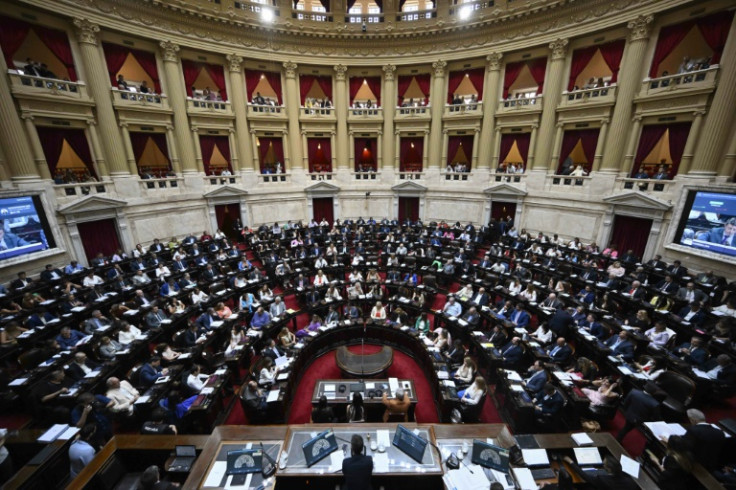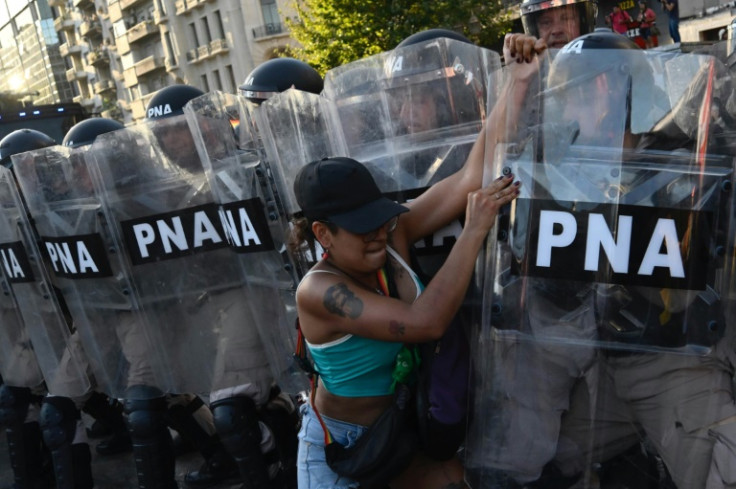Argentina Lawmakers Debate Milei's Hefty Reform Package

Argentina's lower house of Congress on Wednesday began what is expected to be a marathon debate on President Javier Milei's mega-bill to reform the economy, politics and even some aspects of private life.
Milei's so-called omnibus bill initially contained 664 articles, but has lost almost half of these in tough negotiations with the opposition, which largely outnumbers his party in Congress.
"We have reached an agreement" for the bill to be approved "in general," said ruling party lawmaker Jose Luis Espert before the session started. Milei's party, Libertad Avanza, has only 38 of the 257 seats in the lower house of Congress.
Milei, a libertarian and self-described "anarcho-capitalist," took office in December vowing to slash spending and end decades of economic crisis in South America's third-largest economy, where annual inflation stands at over 200 percent.
The 53-year-old outsider won a resounding election victory on a wave of fury over the country's decades of economic crises marked by debt, rampant money printing, inflation and fiscal deficit.
Milei began his term in office by devaluing the peso by more than 50 percent, cutting state subsidies for fuel and transport, reducing the number of ministries by half, and scrapping hundreds of rules so as to deregulate the economy.
His massive reform package touches on all areas of public and private life, from privatizations to cultural issues, the penal code, and divorce, to the status of football clubs.
Milei notably was forced to remove a set of tax reforms he had hoped would help his government cut spending by five percent, and a highly controversial modification of how pensions are calculated.
Thousands of protesters rallied outside the legislature to express their unhappiness with the reform bill.
Towards the end of the day, some protesters clashed with the police, who cleared the roads near Congress and used tear gas, according to AFP reporters.
Moderate opposition lawmakers have warned they will seek further changes to the bill, in particular on the touchy issue of the delegation of special powers to the executive in an economic emergency, and on the scope and extent of privatizations.
Plans to privatize state-owned oil giant YPF have already been scrapped, but another 40 companies are still on the list.
Lawmaker Martin Tetaz, from a centrist opposition party, estimated that "a third of the project will have difficulty being approved", and his group plans to ask for modifications.
Lawmakers are preparing for a marathon session, with an initial 35 hours of debate planned over several days, and 200 speeches.
They will have to vote on each article and once approved, the bill will head to the Senate. If further adjustments are made it will have to pass back through the Chamber of Deputies.
On Tuesday, the International Monetary Fund slashed its forecast for Argentina's growth prospects, predicting a contraction of 2.8 percent in the economy.


© Copyright AFP 2024. All rights reserved.





















